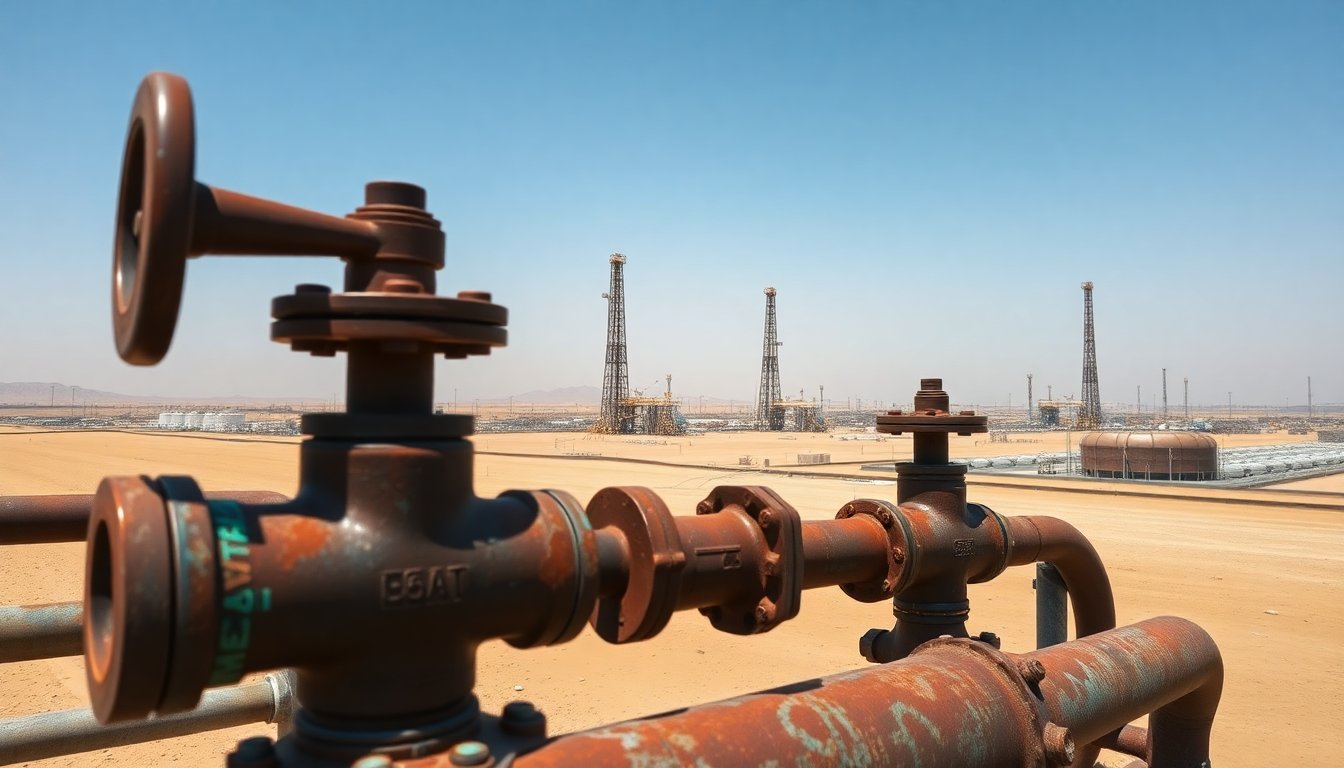Table of Contents
The recent imposition of U.S. sanctions on Russian oil companies has significantly disrupted the operations of Lukoil, one of Russia’s largest oil producers. In response to these sanctions, Lukoil has declared force majeure at its key West Qurna-2 oilfield in Iraq. This situation not only hampers their production capabilities but also raises concerns about the future of Russian oil exports in the global market.
West Qurna-2 is a critical asset for Lukoil, contributing approximately 9% of Iraq’s total oil production, with a capacity of around 480,000 barrels daily. The sanctions have prompted Iraq to suspend all cash and crude payments to Lukoil, resulting in the cancellation of about 4 million barrels of oil that were scheduled for November deliveries.
Impact of U.S. sanctions on Lukoil
The sanctions, imposed last month, specifically target major players in the Russian oil sector, including Lukoil and Rosneft. This has caused a ripple effect throughout the industry, leading countries in Europe to reassess their energy collaborations. For example, Bulgaria is taking steps to assume control of Lukoil’s Burgas oil refinery, reflecting a broader trend of nations scrambling to secure energy resources amidst geopolitical tensions.
Consequences for Iraqi oil production
Reports indicate that Lukoil has informed Iraq’s oil ministry that the sanctions have made it impossible to maintain normal operations at the West Qurna-2 site. If conditions do not improve within six months, the company plans to cease operations entirely and withdraw from the project. Such a withdrawal could have significant implications for Iraq, where Lukoil plays a vital role in the oil sector.
Furthermore, Iraq’s state oil marketer, SOMO, has already canceled shipments of three crude cargoes from Lukoil’s production share at West Qurna-2, citing the sanctions. This action underscores the immediate impact on both companies involved.
Wider implications for Russian oil exports
The sanctions extend beyond Iraq, affecting Russian oil shipments to other countries, including India. Major Indian refiners anticipate a sharp decline in Russian oil deliveries, with reports suggesting imports could drop to nearly zero. This development emphasizes the extensive reach of U.S. restrictions across international oil markets.
In response, Lukoil is navigating a complex landscape of compliance and operational adjustments. The company is exploring alternative strategies to mitigate the effects of sanctions, though the uncertainty surrounding the geopolitical climate complicates these efforts. Lukoil’s ability to adapt will be crucial in determining its future within the global energy market.
Future prospects for Lukoil and its assets
As Lukoil addresses the implications of these sanctions, speculation continues about the fate of its assets and future projects. The potential for further sanctions remains a concern, and the company must remain vigilant to protect its interests while navigating regulatory challenges. The operational disruptions at West Qurna-2 highlight how swiftly geopolitical dynamics can affect global energy supply chains.
Lukoil’s declaration of force majeure at its West Qurna-2 field marks a significant development in the ongoing challenges faced by Russian oil companies under international sanctions. The long-term effects on Iraq’s oil production capabilities and the broader energy market remain uncertain, but immediate challenges are evident. As Lukoil and other energy firms adapt to these changes, the global oil landscape may undergo a transformation driven by these geopolitical tensions.


